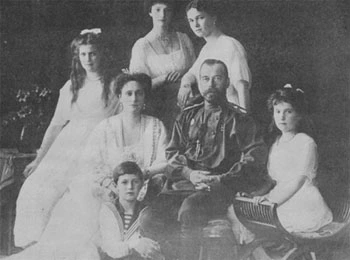Within a month, German U-boats had sunk five US ships, killing American passengers.
The U-boats were decimating shipping crossing the Atlantic, sinking 25 per cent of British merchant ships bringing in essential supplies and foodstuffs. Admiral Jellicoe warned ‘it is impossible for us to go on with the war if losses like this continue’. Lloyd George’s answer was to implement a system of convoys so that ships would not have to run the gauntlet of travelling alone. Introduced in May 1917, the effect was immediate – the losses to British ships went down from a quarter to one per cent.
Ireland and Easter Monday
In 1914, Ireland had been on the brink of civil war – the Government Act of Ireland (or, Third Home Rule Bill) had just been passed by Asquith’s Liberal government, but its implementation was to be delayed until the cessation of war. Both Unionists and Nationalists volunteered to fight for Britain, each side hoping that by answering Britain’s call-to-arms, they would be rewarded by Whitehall after the war.
The Unionists were keen to demonstrate their loyalty, while the Nationalists hoped to prove they were not so anti-British that they could not be trusted with Home Rule. A minority of about 10,000 Nationalists, however, resented their colleague’s kowtowing to the British and planned on an uprising to take place on Easter Monday, 24 April 1916. The uprising had limited success and many viewed it as a traitorous act while their brothers were fighting for the British. Britain squandered its sympathetic support in Ireland by its harsh suppression and punishment of the Uprising’s leaders and participants.
Russia and Revolution
Following a series of defeats on the Eastern Front, Tsar Nicholas II dismissed his commander-in-chief, perhaps under the influence of the Russian monk and soothsayer, Grigori Rasputin. Nicholas appointed himself in charge of Russia’s future war effort, despite his total lack of military experience.

Tsar Nicholas II, his wife and family
On 8 March 1917 the culmination of food shortages, dissatisfaction with the war and public discontent all contributed to an uprising in the Russian city of Petrograd. The city, formerly St Petersburg, had been renamed to the less Germanic-sounding Petrograd in 1914. By 12 March, there was revolution. Two million Russian soldiers deserted in the eight weeks of March and April alone. Soldiers, previously loyal to the Tsar, joined the movement. Nicholas tried to return to the city but found his way barred. The Russians had become disillusioned with their Tsar and his domineering wife who, they felt, paid too much heed to Rasputin. Having, in a matter of days, lost all authority, the Tsar abdicated. The three-century-old Romanov dynasty was no more. The Tsar, his wife, family and household were all executed by the Bolsheviks in Yekaterinburg on 17 July 1918.
In place of the monarchy, a provisional government, under Alexander Kerensky, had no intention of suing for peace, and instead promised that the new government would do ‘everything in its power to carry the war to a victorious conclusion’. However, Kerensky’s authority was undermined by workers’ councils, or ‘Soviets’, that had sprung up in the cities. One man, in exile in Zurich, was determined to end the war and bring about an international workers’ revolution. The Germans, keen to allow him to cause as much discord in Russia as possible, gave him passage back to his native land through Germany in a sealed train. His name was Vladimir Lenin.
Arriving in Petrograd on 16 April, he was soon joined by fellow revolutionary, Leon Trotsky. Lenin immediately went on the offensive – denouncing Kerensky, the war and the exploitation of Russia’s peasants, workers and soldiers.
In July, Kerensky launched the Russian army against the Germans, the Kerensky Offensive, but it failed. The Germans counter-attacked and advanced as far as Riga. This was the final straw for the Russian soldier.
In Petrograd, Kerensky went on the attack – arresting Bolsheviks, including Trotsky, and trying to restore order. Lenin disappeared to Finland and went into hiding. Kerensky’s commander-in-chief, Lavr Kornilov, was heading back to the city, fresh from his defeat to the Germans, with the intention of taking control. Kerensky released the Bolsheviks and begged Lenin to return. Kornilov’s soldiers were met by the revolutionaries at the gates of Petrograd and persuaded to down their weapons. They did – many went home; others joined the Bolsheviks.
1 comment